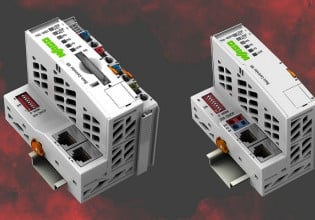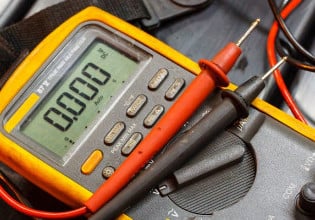Siemens Pushes for an Equitable Supply Chain, Awards $200,000 in Grants to Black-owned Businesses
Siemens has partnered with the U.S. Department of Commerce Minority Business Development Agency to boost an equitable supply chain by awarding grants to ten black-owned businesses.
Siemens USA, the United States subsidiary of the technology powerhouse Siemens, is continuing its efforts to build an equitable marketplace with an investment of $200,000 in grant funding to black-owned businesses. Siemens USA is working alongside the U.S. Department of Commerce Minority Business Development Agency (MBDA) Centers for the third year in a row to promote equity, inclusion, and diversity in the supply chain.

Siemens USA is working alongside the MBDA Centers for its third year to promote equity, inclusion, and diversity in the supply chain. Image used courtesy of MBDA
Supply Chain Diversity
Supply chain diversity is having multiple suppliers and vendors for goods and services, which reduces risk and increases efficiency. Supply chain diversity helps businesses be more resilient in the face of supply chain disruptions while providing access to a broader range of products and services. It also benefits companies from different pricing models, increased competition, and better customer service. By diversifying their supply chains, companies can reduce costs, increase quality control, and improve overall efficiency.
According to the National Minority Supplier Development Council, a minority business enterprise (MBE) includes U.S. citizens of Black, Hispanic, Asian-Pacific, Asian-Indian, and/or Native American descent. Business ownership by individuals considered part of a minority group is at least 51 percent. For publicly owned businesses, a minimum of 51 percent of the stock is owned by one or more individuals from MBE groups. Gender is another important element of what it means to be an MBE.
With reference to McKinsay and Company (McKinsey and Co), supply diversity is key to creating a better working environment, improving performance, and advancing together as a more inclusive society. McKinsey and Co are actively promoting the growth of supplier partnerships with minority- and women-owned business enterprises (MWBEs) to help boost the U.S. economy. By bringing together a range of unique perspectives and voices, ideas can become more powerful and more mobile to build momentum behind business growth.
In 2021, the U.S. Department of Commerce made the MBDA permanent, providing the agency with the authorities, resources, and workforce to reach out to, collaborate, and partner with MWBEs.
Several Fortune 200 U.S. publicly-traded companies have committed over $50 billion to MWBE partnerships over ten years, according to McKinsey and Co. One of the positive impacts of MWBEs includes year-on-year cost savings of 8.5 percent for corporate partners.

SynEnergy, LLC, in Denver, Colorado, is one of the ten businesses chosen to receive a $20,000 grant. Image used courtesy of Adobe Stock
Awardee Selection
Siemens and the Georgia Tech MBDA Center have chosen ten businesses with a focus on industry needs, including preventative and predictive maintenance, rail and transportation, project management, and construction. The chosen businesses hail from ten U.S. cities, including Memphis, Baltimore, Buffalo, Denver, Dallas, Raleigh, Pittsburgh, Washington, Sacramento, and Louisville, and have been awarded $20,000.
Almost a quarter of Siemens’ total supplier network comprises small and diverse-owned businesses. Siemens supports these businesses with almost $1 billion in funds each year.
Siemens believes that investing in supply chain diversity is integral to strengthening the supply chain and growing its business along with supply partners while generating positive social impacts as the demographic landscape of the U.S. evolves.
Siemens is also collaborating with historically black colleges and universities (HBCUs) to recruit and hire talented individuals. Siemens is actively looking for individuals from HBCUs to fill in-demand roles, from engineers and technicians to software experts.






